World News
African Diaspora Shapes Political Western Nations’ Landscapes 1
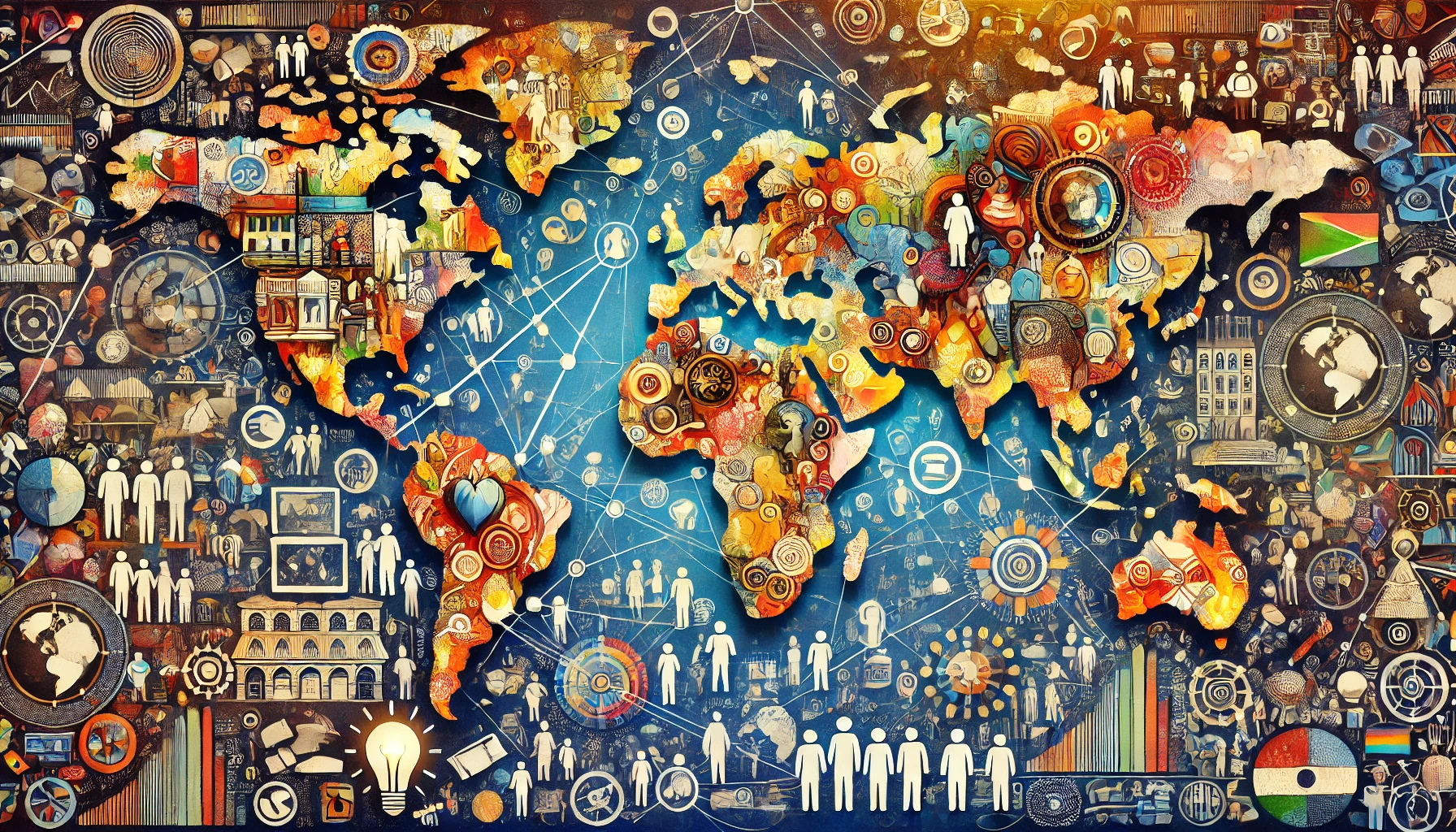
The rise of Africans in political offices in North America and Europe indicates a notable trend. This might be linked to historical migrations, particularly from the late 1950s through Nigeria’s oil boom, 1970s to mid-1980s. Albeit, the 21st-century emigration trends are more driven by economic downturns in Africa than past Nigerian prosperity.
Holistically speaking growing African Diaspora influence in governance roles in developed countries reflects extended residencies and social relevance. This is obvious for second or third-generation individuals born in those nations. The resulting diversity in political representation therefore underscores the importance of inclusive governance, bringing a broader range of experiences to policy-making. That is exemplified by figures like U.S. Congress’ Ilhan Omar and Yvette Cooper in the UK, showcasing growing roles in those nation’s policies and governance.
Ilhan Omar, originally from Somalia, made history in 2018 as one of the first Muslim women in U.S. Congress, representing https://www.govtrack.us/congress/members/MN/5.She is into strong advocating policy reforms on immigration and social justice. Omar seeks to stregthen cultural identity towards building political commitment. She frequently advocates for immigrant communities to promote policies, reflecting her constituents’ diverse needs. Omar’s legislation demonstrates the critical role that her background plays in policy-making efforts, aiming for more inclusive decision-making and policy outcomes.
Omar’s work in Minnesota positions increased access to healthcare and education, underscoring her community’s upliftment. She is also setting example for national representation. Naturally, Omar’s story as Somalian refugee now a U.S. Rep links her cultural background to racial and social justice. These issues are deeply entertwined with her Muslim woman of African descent identity.
Adeoye “Oye” Owolewa of Nigerian descent, was elected in 2020 as the U.S. Shadow Representative for the District of Columbia, https://www.usa.gov/states/district-of-columbia. Owolewa advocates for D.C. statehood, focusing on education and healthcare, influenced by his Nigerian heritage. This informs his political engagement for equitable healthcare solutions and educational reforms , to gain social justice, equality and marginalized communities’ rights.
His immigrant perspective emphasizes D.C. statehood, representation, racial equality, immigration and international development issues. Owolewa’s D.C. contribution fosters dialogue around healthcare access and education reform to boster the well-being of minority communities.
Owolewa Nigerian-American background infuses his policy advocacy with a global perspective, acknowledging the challenges of immigrant communities.His Nigerian identity intensifies a political ideology and affiliations that elevates voices of D.C. residents about statehood, ringing loud shift in diverse political engagement and representation.
Carolyn Uchenna Okere elected to the Hamilton County Municipal Court, https://hamiltoncountycourts.org/index.php/municipal/ in 2020, is making significant strides in the legal landscape of Ohio.Okere’s Nigerian roots shape her commitment to fairness and justice. Her election to the bench highlights dedication to community service and empowering marginalized individuals for equitable treatment.
Judge Carolyn Uchenna Okere is a trailblazer in Ohio’s legal system, championing accessible and impartial justice influenced by her cultural heritage. Her focus on community well-being and equality ensures all voices are respected. She inspires African and diasporic communities, advocating for legal awareness and rights, while fostering dialogue on justice reform and promoting diversity within the Hamilton County Municipal Court.
Born to Nigerian parents, Kemi Badenoch was first elected United Kingdom MP, North West Essex, https://members.parliament.uk/constituency/4217/ location in 2017. She has held various ministerial roles and is known for her conservative views. Steeped in her Nigerian heritage, Badenoch’s representation advocates equality and justice, using personal experiences to support marginalized communities in politics.
Kemi Badenoch is committed to fostering development and diversity, particularly through technology and mentoring women in engineering. Her constituency and national work involves promoting economic growth, education, healthcare, and STEM opportunities for women and minorities.
She tackles racial and gender inequality, highlighting the positive impact of African diaspora politicians. Additionally, Badenoch’s focus on international trade and business development supports economic growth, while advocating for diversity, equity, and social justice.
Politics
Father of Protests Fears Grand Kids’ Protests!
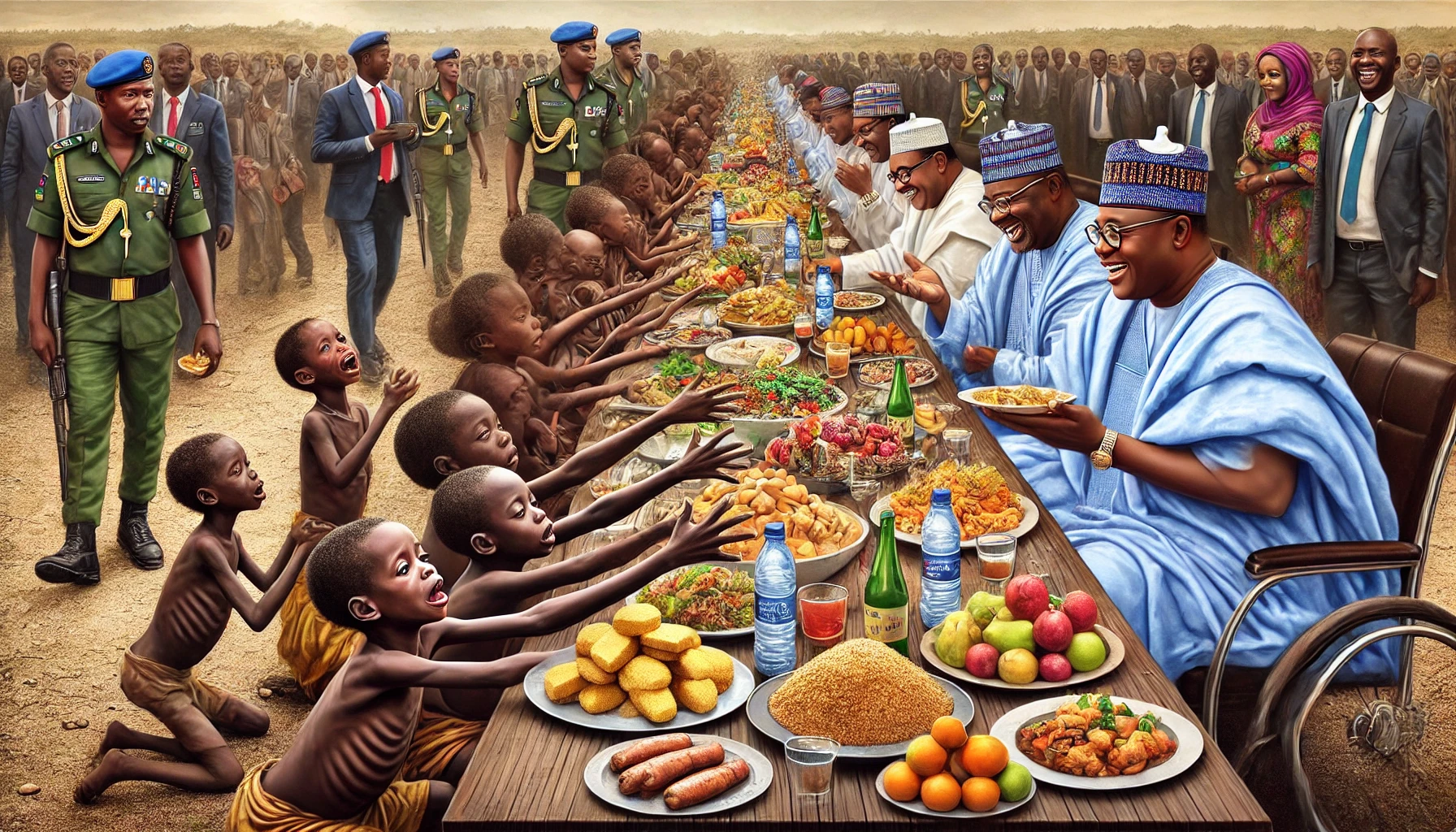
Tinubu’s leadership in the National Democratic Coalition (NADECO) during the 1990s marked a pivotal moment in Nigeria’s struggle for democracy. Opposing military mismanagement, he and fellow activists advocated for democratic governance, ultimately paving the way for Nigeria’s current political system. This activism may have been heavily influenced by luminaries like First Republic Western Nigeria leader, Chief Obafemi Awolowo, who showcased a commitment to democracy that resonated with Nigerians.
However, the current socio-political climate sharply contrasts with the altruism of the past. The looming protests scheduled for August 1, 2024, signal a significant civil unrest rooted in widespread dissatisfaction with Tinubu’s federal administration. Despite his attempts to pacify citizens, the populace is mobilizing, determined to confront economic hardships and governance failures head-on.
President Tinubu’s rise to power, marked by great expectations, may have devolved into disillusionment. Following his controversial decision to raise petroleum prices shortly after inauguration on May 25, 2023, hopes for transformative change have faded. Rising inflation and worsening wealth inequality have fueled concerns about the administration’s governance. The National Bureau of Statistics, Nigeria reports a 33% unemployment rate and significant socio-economic disparities, contributing to widespread frustration among citizens over the government’s effectiveness.
Political figures such as Peter Obi, a prominent opposition candidate in the 2023 presidential elections, have attributed the unrest to structural issues of hunger and economic frustration. Meanwhile, Tinubu’s supporters, including media helps Bayo Adenuga, continue to defend his administration, despite growing discontent among the general populace. This division underscores the deepening wound between expectation and reality.
Amidst this rising economic tensions, Nigeria’s youth, often referred to as “Generation Next,” are increasingly vocal about their frustrations. Characterized by their adept use of social media and grassroots organizing, this generation is focused on demanding transparency and accountability from their leaders. They juxtapose their plight against past protests like the 2020 #ENDSARS. Drawing inspiration from the activism that defined Tinubu’s early years while forging their own path forward they called #ENDBADGOVERNMENT!
In that context, Generation Next, a powerful force advocating for change mobilizes against stagnant opportunities, challenging the status quo and seeking redress for economic injustices. Their emergence stands in stark contrast to Wole Soyinka’s notion of the “Wasted Generation,” as they actively strive for a more equitable society, demanding their rights to basic needs and opportunities.
As the August 1 protests approach, citizens are not merely addressing economic hardships, but also the pervasive climate of corruption engulfing Tinubu’s administration. Allegations of misallocated funds and ineffective economic policies have led to skepticism regarding his promises of transparency and governance. This atmosphere of distrust has intensified calls for investigations and greater accountability, echoing the sentiments that initially drove Tinubu’s own activism.
Protesters seek accountability from leaders amid corruption and fading public trust. Their demonstrations reflect a generational desire for a government that represents their interests, symbolizing a broader struggle for equity and justice, empowering youth to challenge failing governance.
Faced with this mounting discontent, President Tinubu is seemingly confronted with a paradox: as the father of protests, he now finds himself fearful of the very movements he once inspired. The echoes of NADECO are inescapable, reminding him of his past struggles against military rule and fight for democracy. However, the current civil unrest poses a formidable challenge, placing his legacy in jeopardy.
The August 1 protests in Nigeria extend beyond economic hardships, representing a struggle for democracy and equity. Citizens aim to hold President Tinubu accountable and challenge his legacy. This moment underscores the need for reform and reflects on leadership responsibilities amid rising youth activism.
World News
Labour Party Candidate Commends Rival’s Contributions to National Development
Peter Obi Praises Atiku Abubakar on His 77th Birthday
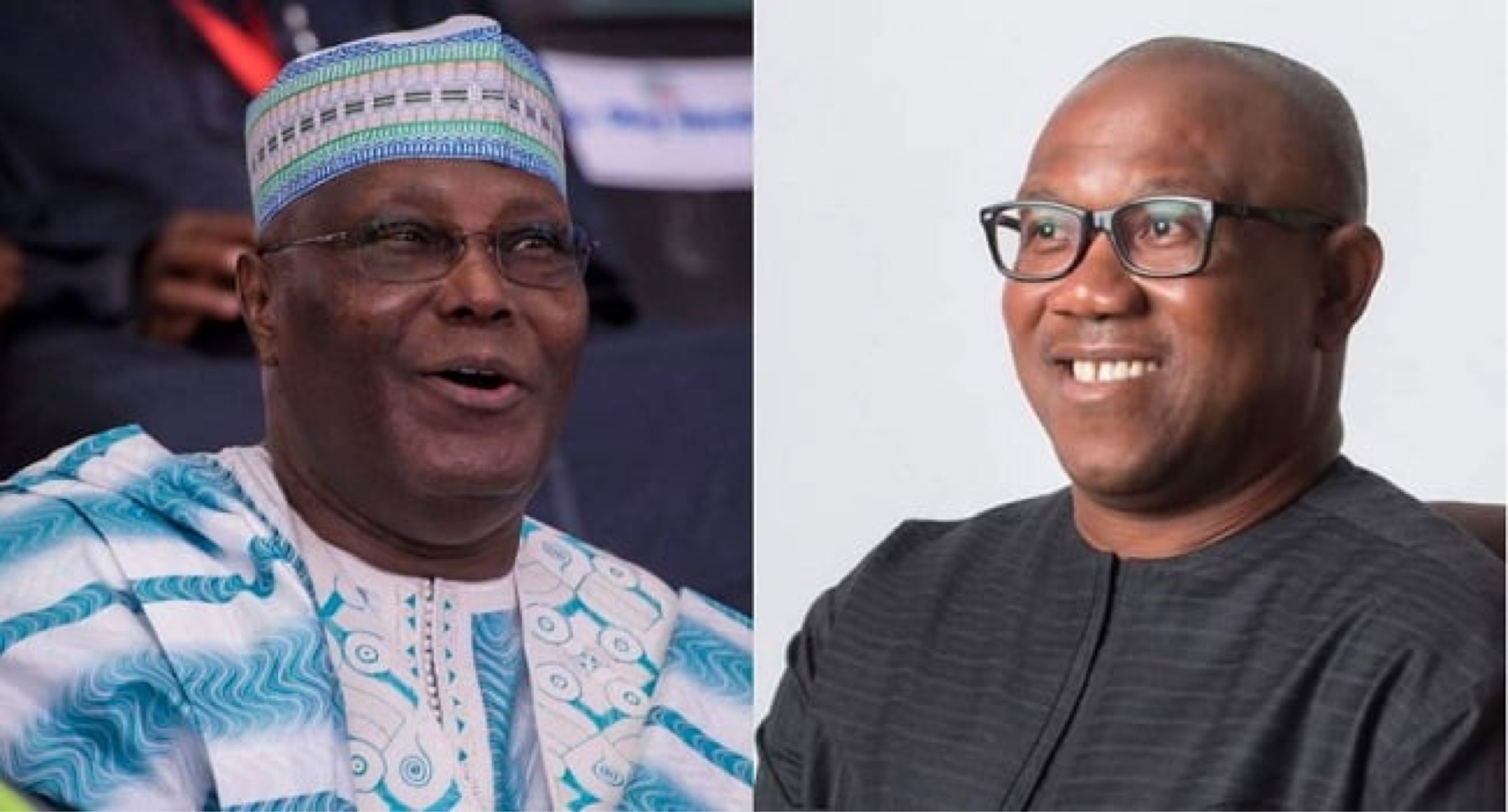
Labour Party candidate Peter Obi has taken the opportunity to praise his rival, Atiku Abubakar of the Peoples Democratic Party, on the occasion of Atiku’s 77th birthday. In a heartfelt message posted on his official social media page, Obi expressed admiration for Atiku’s contributions to the growth of the nation and referred to him as a “very dear respected elder brother and leader.”
Obi’s message highlighted Atiku’s significant impact on the socio-political and economic development of Nigeria. He specifically acknowledged Atiku’s role in deepening the nation’s democracy and praised his efforts in improving national productivity and manpower development through various business establishments and educational investments.
“Along with your family, friends, and numerous well-wishers, I celebrate your many contributions to the socio-political and economic development of our beloved country and in particular your unique role in deepening our nation’s democracy,” Obi’s message read. He further noted, “You have undoubtedly positively impacted the nation’s economic growth through your various business establishments which not only create jobs for our people but add to our overall national productivity.”
The public display of respect and admiration from a political rival underscores the spirit of camaraderie and mutual appreciation among political leaders in Nigeria, emphasizing the importance of recognizing contributions to national development regardless of political affiliations.
Politics
A Speech on Time Saves Trust.
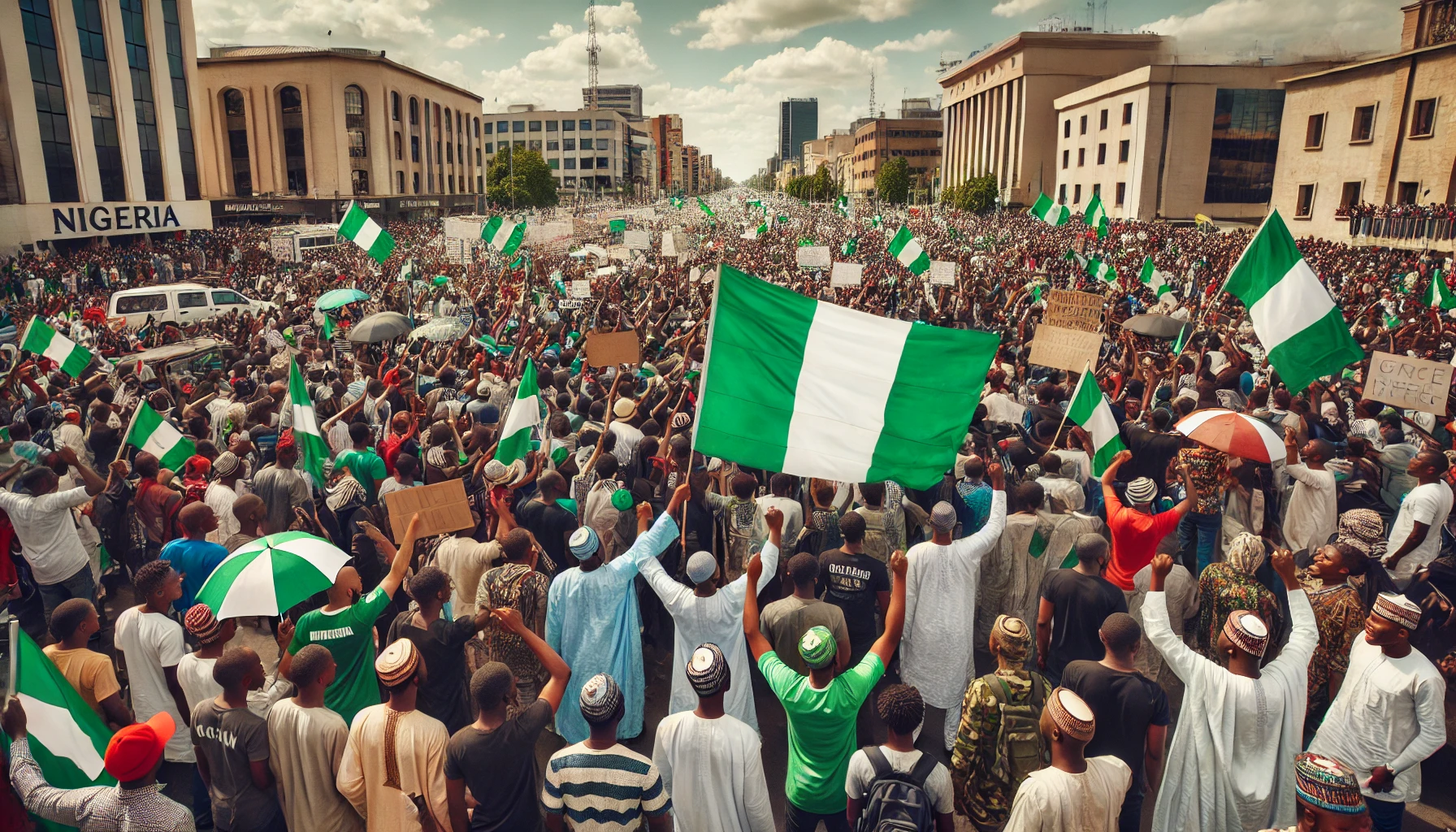
President Tinubu attempted to calm Nigerians during protests, restating aspirations similar to previous campaigns. He declared “My vision for our country is one of a just and prosperous nation where each person may enjoy the peace, freedom and meaningful livelihood that only democratic good governance can provide.” Albeit Nigeria’s complex socio-political challenges remain persistently scrutinized by analysts and activists.
First off, unshared in meaning social messaging resulted in trust deficit and evolved into the #ENDBANDGOVERNMENT and #ENDHUNGER protests. If both sides shared democratic ideals, Nigeria would retain trust, a cornerstone of governance. Tinubu’s speech recognized timeliness, but lacked clarity. Unlike Buhari, who delayed but earned trust, Tinubu’s approach is questioned by some Nigerians.
Trust reminds leaders to act on promises. Tinubu’s information-driven approach may calm nerves, breed trust and grow social cooperation and cohesion. But activists argue there’s a disconnect between government promises and Nigerians’ lived realities. Aisha Yesufu, a activist and a prominent voice of the 2020 #ENDSARS movement, asserts, “Trust cannot be built on a foundation of broken promises and unfulfilled commitments.” Nigerians feel disillusioned by repeated rhetoric without substantial change.
The National Bureau of Statistics (NBS) statistics illustrate realities with approximately 40% of Nigerians living below the poverty line in 2023. Activists urge the government to alleviate economic hardship beyond rhetoric, warning that without accountability and citizen upliftment, trust in government will erode further.
Amplifying Yesufu’s assertions politician and activist Omoyele Sowore, African Action Congress (AAC) 2023 presidential election candidate emphasizes need for genuine dialogue. “When leaders refuse to listen to the voices of the populace, they create a rift that can lead to unrest.” The insistence on obligatory communication leading to trust underscores the need to avoid popular discontent. Such activists’ counter reactions to Tinubu’s call for dialogue and suspension of protests, while maintaining order, sync with Dr. Ayo Olukotun, renowned Nigerian political scientist, media scholar, and columnist’s submission. “The timing of government responses often lacks the urgency of the crises they address.”
Critics question Tinubu’s revenue claims, citing governance flaws and economic instability, with EFCC sounding skeptical about fund usage even before now. “… we must be able to hold people accountable. If you have spent eight years, four years, even if it is one year… the position you are holding is a position of trust on behalf of all Nigerians. So, what we are simply saying is that when you finish, come, we want you to explain how you spent our common wealth while you are in the office” Despite 9.1 trillion Naira revenue, the public doubts benefits and struggles for economic stability persist.
Analysts stress the need for independent oversight to ensure effective implementation of government initiatives and resource use. The EFCC chairman again agrees, “We need to address the focus of our mandate… use the Commission to drive economic development… for the system to thrive, for the economy to grow, for the society to get better. Therefore, our focus should be geared towards developing the nation for greater benefits”
Where does that leave Tinubu’s position that, “Just over a year ago, our dear country… reached a point where we couldn’t afford … temporary solutions to solve long-term problems …’ So, “On the fiscal side, aggregate government revenues have more than doubled… compared to the first half of 2023.”
The President insists, “Yes, I agree, the buck stops on my table…I am focused fully on delivering the governance… good governance for that matter.” He solicits, “Let nobody misinform and miseducate you about your country or tell you that your government does not care about you.” Tinubu’s statement implies that balancing security and civil liberties is crucial, as maintaining order can infringe on individual rights.
Human rights organizations caution against security forces’ abuse during protests, urging the government to address root causes of public discontent. And that seem to be the case where, at, ‘… least 22 protesters have been reported killed; injuries include, ‘…at least 175 people injured; arrests up … Over 1,100 protesters have been arrested.’
Nigeria’s diverse community reflects a fragmented national identity; therefore, trust is essential for social cohesion. Effective communication and accountability in leadership and relationships are crucial for fostering unity. Immediate efforts are needed to build and define this trust.
Politics
Incumbency Power
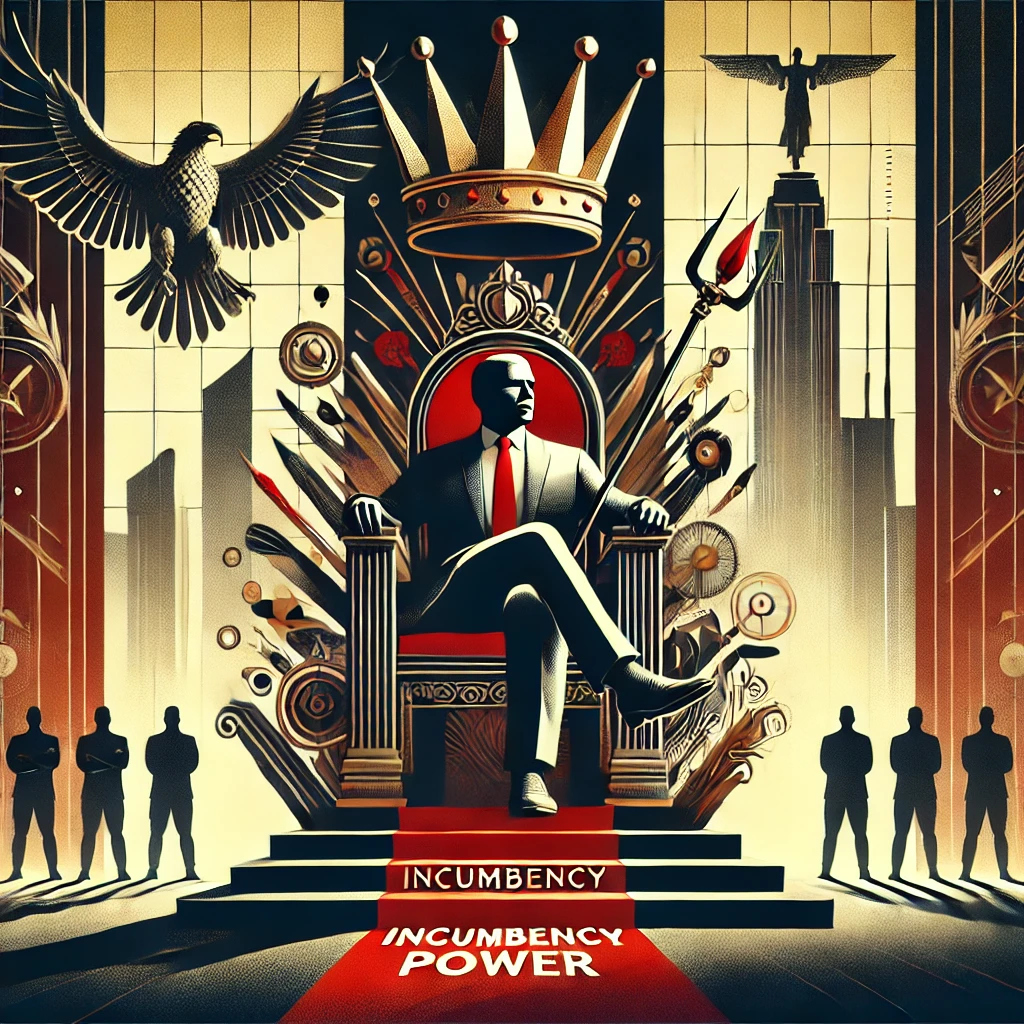
WHAT WILL YOU LEAVE BEHIND?
The interconnectedness and interdependence of globalization are reshaping our world, challenging traditional notions of “home” and fixed identities. This shift has given rise to the diasporic experience, where individuals navigate multiple cultural identities and exist in “liminal spaces” between different cultures. So, where will identity eventually feature in a world of increasing interconnectedness?
Identity is the unique set of qualities, characteristics, and experiences that define who an individual is. For those living in the diaspora, the concept of “home” becomes complex, as displacement from ancestral roots often results in a lifelong journey of reconciling multiple cultural identities. Cultural theorist Homi K. Bhabha describes this as occupying a “third space”—a betwixt and between zone, between original culture and settled culture.In the later, new hybridized identities are formed; in-between status fostering a profound sense of dislocation as individuals navigate multiple worlds, constantly renegotiating their sense of self.
This is where the concept accelerating interconnectedness and interdependence is leading; to the emergence of a single, unified global society. A 2020 United Nations report posted an estimated 281 million international migrants worldwide, grown by over 50% in the past two decades.So where how will identities playout in this ancient or primeval urge by humanity to flow to new homes, possibly sustaining old identities. Really, as ingrained sense of “home,” also sustains accustomed ways and means, and lifestyles.
How should migrants even create and enjoy a sense of belonging counter to the above? Leila Aboulela, a Sudanese-Scottish author, captures the experience of belonging in her novel “The Translator”: “I’m neither here nor there, always suspended between two worlds, two identities, two homes. I’m a foreigner everywhere, even in my own country.” This feeling of not fully belonging to any one place is common in diasporic literature and personal accounts.
There arises a strong need for acculturisation or cultural integration, because the diaspora could suddenly discover that homesickness may not be beneficial; really an African individual enjoys family crowd than would European or North Americans. And family is where a lot of migrants from family-minded soceities find emotional resonance. But what if the African migrant in Eurpe suddenly finds that resonance awkward, by the time he or she goes and is sometimes enstranged by sudden ‘unfamiliar’ homeland orientations.
This is wheere sociologist Avtar Brah elaboration on the notion of “homing desire,” the yearning for a place that is both physically and emotionally resonan becomes complicated. The “homeland” may have changed significantly since their departure, or it never truly felt like home. Thrown back into the diaspora home, it feels like a space of constant negotiation, where individuals reconcile inherited cultural legacies with present-day lived experiences.
It become a tale with many shades, which novelist Chimamanda Ngozi Adichie speaks about in the challenge of reconciling her multiple cultural identities: “I am an Igbo woman, I am a Nigerian, I am an African, and I am a citizen of the world. I don’t think that any one of those identities is more important than the other.” For those navigating the diasporic experience, the quest for identity and belonging is often complicated by societal perceptions and the burden of representation.
How then should migrants situate their individualists in seriously individualised occidental soceities. Novelist Zadie Smith, born in London to a Jamaican mother and an English father, writes about the frustration of being “always the only one” in majority-white spaces, bearing the burden of representing her entire racial and cultural heritage. There is no let; indeed diasporic individuals of necessity, constantly renegotiate their sense of self in response to external forces shaping their experiences.
Invariably this calls for utilitarian assimilation , balanced against preservation of cultural diversity. Arjun Appadurai, an athropologist describes the diaspora as a “deterritorialized” space, where “the imagination is freed from the constraints of everyday life and given new resources and ideas to explore the multiple possibilities of human life.” He means to say diasporic individuals are empowered herethereto, to craft new, hybridized identities resisting binary categories of “here” and “there,” “us” and “them.” This could help ease tension between nationalism and internationalism. Paul Gilroy’s cultural theory therefore argues that the diaspora can become a “counter-cultural” force, challenging fixed, essentialist identities and national boundaries. This dynamism and creative potential are evident in diasporic art, literature, and cultural production, challenging the traditional notions of nationalism and embracing a more global perspective.
The Impact of Homogenization on Personal and Collective Identity
Sociologist Stuart Hall discusses the “crisis of identity” experienced by many in the diaspora, as they grapple with the “fragmented” and “unfinished” nature of their sense of self. Reconciling multiple, often competing, cultural influences can lead to feelings of displacement, uncertainty, and a profound sense of loss.
The Negotiation of Multiple Identities in a Globalized World
The diasporic subject is a powerful emblem of our interconnected, globalized world a testament to the fluidity of identity, the richness of cultural exchange, and the enduring human need for connection and belonging. By embracing the hyphen, the diasporic individual becomes a living embodiment of the possibilities that arise when we transcend fixed, essentialist categories and embrace the multiplicity of lived experiences.
The Role of Tradition, Heritage, and Traditions in a Unified Global Society
In this unified global society, the diasporic individual’s ability to navigate multiple identities becomes a model for the negotiation of tradition, heritage, and modernity, illustrating the potential for a harmonious coexistence of diverse cultures and the preservation of cultural diversity within the broader context of globalization.
Conclusion
The diasporic experience offers a powerful lens through which to understand the evolving nature of identity in a globalized world, emphasizing the fluidity of cultural exchange, the importance of embracing multiple identities, and the potential for a more harmonious coexistence of diverse cultures. As the world grapples with mass migration, shifting demographics, and the erosion of traditional notions of nationhood, the insights and perspectives offered by the diasporic experience are increasingly relevant. Charting their journeys of identity and belonging, diasporic individuals redefine what it means to be “at home” and offer a blueprint for navigating the complexities of our rapidly changing global landscape.
World News
The Pan-Nigerian Pact of Pragmatic Immorality
Nigeria faces identity, morality and governance issues. Previously and under President Tinubu, systemic corruption and inefficiencies have eroded public trust, despite claims of transparency and reforms.Despite these efforts, the urgency of these issues remains critical as citizens struggle for daily survival 123.
Identity in Nigeria is multifaceted and shaped by historical, ethnic, and socio-political factors. Chinua Achebe, in his seminal work “Things Fall Apart,” captures the clash of traditional values and modern influences. This resonates with Nigeria’s current struggle with identity amidst moral compromise. Achebe’s reflection that “the center cannot hold” is a moving metaphor for a nation, where comunal integrity is often undermined by individual greed.
Emphasized, more often than not, morality in Nigerian society is frequently trashed by pervasive corruption resulting from greed. However, traditionally Nigeria’s moral compass is guided by community values and ethics, but are being increasingly skewed. Cultural scholar Wole Soyinka critiques Nigerian society, for its erosion of moral values, asserting that “the man dies in all who keep silent in the face of tyranny.” This tyranny is not just political, but also moral, where silence and complicity have become the norm.
Normal in the sense that corruption is perhaps the most glaring manifestation of consensual immorality in Nigeria. Transparency International’s Corruption Perceptions Index, consistently ranks Nigeria among the most corrupt nations. This systemic corruption affects all levels of society, from the highest echelons of government to everyday interactions. Political analyst Femi Falana points out that “corruption has become a national culture, deeply ingrained in the fabric of our society.”
What then is Nigeria’s integrated national culture, which should subsume and blend over 250 ethnic groups, each with its distinct traditions and values. Sociologist Peter Ekeh’s “two publics” theory highlights the dichotomy between the “civic public” and the “primordial public” in Nigeria. The civic public, associated with government and officialdom, is often seen as corrupt and self-serving, while the primordial public, tied to ethnic and community loyalties, retains more traditional moral values.
Clashing interests between the two, frustrate governance in Nigeria, leading to poor leadership and worsening accountability issues. The late Professor Claude Ake argued that “the trouble with Nigeria is simply and squarely a failure of leadership.” Effective governance, or the lack thereof, directly influences the moral and ethical standards of the nation.
Social Justice is another critical theme, reflecting the disparities and inequalities that corruption fosters. Nobel Laureate Amartya Sen’s concept of “development as freedom” is relevant here, suggesting that true development must include the expansion of human freedoms, which are often curtailed by corruption and poor governance in Nigeria.
Generally, the impact of corruption on National Identity is profound, because it erodes trust in public institutions, undermines national pride and cohesion. The precipated disillusionment is reflected in the growing desire among Nigerian youths to emigrate. According to a 2020 Pew Research Center report, 45% of Nigerians expressed a desire to leave the country in search of better opportunities. This indicates that Nigerians are increasingly abandoning traditional familial and community ties. This separation creates tension between traditional values and modern practices, impacting their sense of security and identity.
It is vividly portrayed in Chimamanda Ngozi Adichie’s “Half of a Yellow Sun,” where characters navigate the complexities of modernity, while holding on to traditional values. Adichie’s narrative reflects the broader societal struggle to maintain cultural integrity amidst pervasive corruption and modernization. The novel vividly portrays people’s survival during Nigerian Civil War , highlighting the tension between modernity and tradition.
Nigerians often emphasize leadership’s role in shaping moral standards, yet often find it lacking in vision and character. This weakness, alongside cultural disintegration and traditional value erosion, undermines communal support systems and fosters moral and social fragmentation. Weakened cultural accountability have caused stark socio-economic inequalities in Nigeria, with 40% living in poverty. This situation breeds resentment and unrest, threatening ethical redemption. Addressing these issues requires a collaborative effort across all societal sectors to combat moral decay and corruption.
The Yoruba proverb “Àgbà lọ́dọ̀ àrò, ọmọ lọ́dọ̀ òrò” (The elder sits by the hearth, the young one by the mortar) symbolizes the intergenerational effort needed to restore Nigeria’s moral compass. To build a just and ethical society, Nigeria must unite across ethnic divides, integrating traditional values with modern principles, reconciling its identity amidst globalization and internal challenges.
Business
Navigating Currency Exchange Rates and Trade Markets in Today’s Global Economy

In today’s interconnected global economy, currency exchange rates and trade markets play a pivotal role in shaping international commerce and financial transactions. The fluctuations in exchange rates can significantly impact businesses, investors, and consumers, influencing the cost of goods, profitability of exports and imports, and overall economic stability. Understanding the dynamics of currency exchange rates and trade markets is crucial for navigating the complexities of the global financial landscape.
Currency Exchange Rates
Currency exchange rates represent the value of one currency in relation to another and are determined by a multitude of factors, including supply and demand, geopolitical events, economic indicators, and central bank policies. Fluctuations in exchange rates can have far-reaching implications on international trade, investment decisions, and the overall health of national economies.
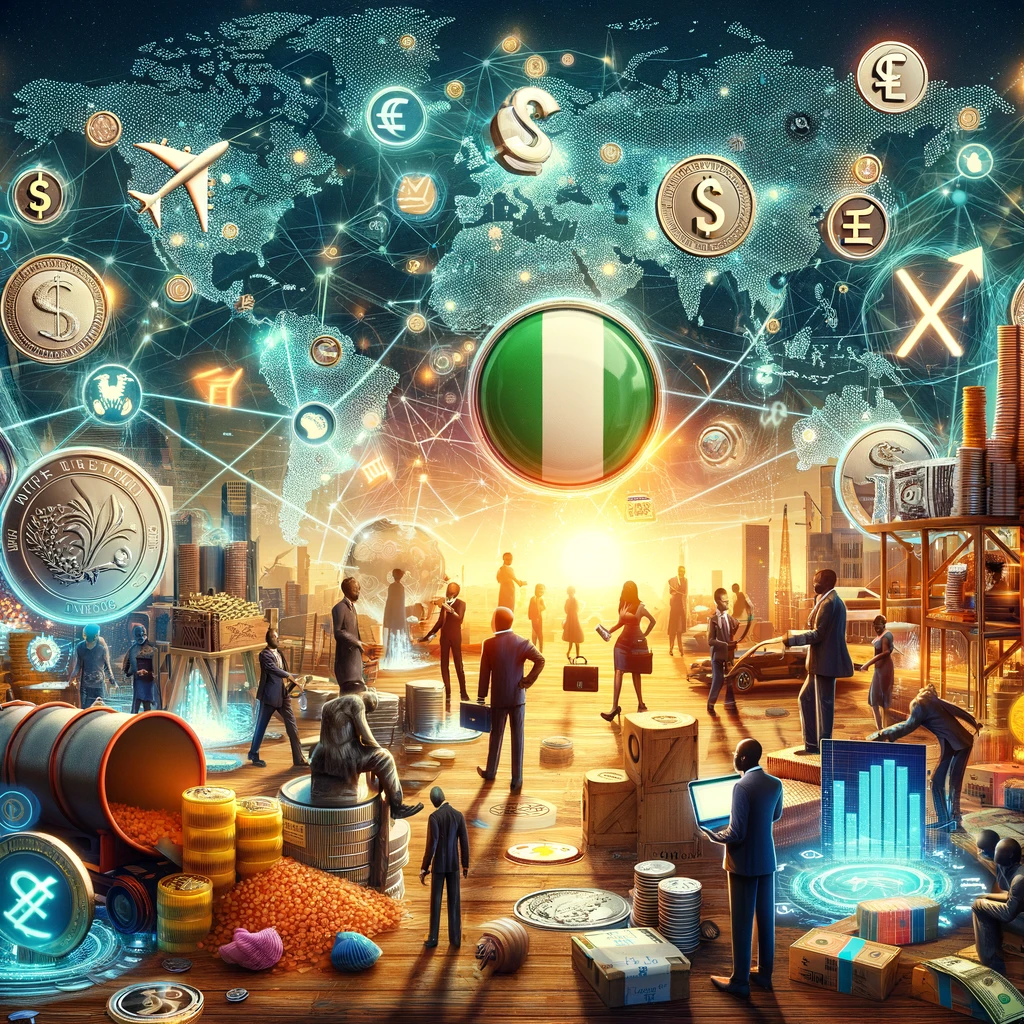
For businesses engaged in international trade, exchange rate movements can directly affect their competitiveness and profitability. A stronger domestic currency can make exports more expensive for foreign buyers, potentially reducing demand for goods and services. Conversely, a weaker domestic currency can make exports more affordable for foreign buyers, boosting demand and potentially increasing revenues for exporting companies.
In the realm of finance, investors closely monitor currency exchange rates as they impact the returns on international investments. Exchange rate movements can influence the value of foreign assets, impacting investment portfolios and diversification strategies. Additionally, multinational corporations with operations in multiple countries face exposure to exchange rate risk, which can impact their financial performance and cash flows.
Trade Markets
Trade markets encompass a broad spectrum of activities related to the buying and selling of goods and services across international borders. The dynamics of trade markets are influenced by a myriad of factors, including trade policies, tariffs, geopolitical developments, and macroeconomic trends. International trade is essential for economic growth and development, providing opportunities for specialization, economies of scale, and access to a wider range of products for consumers.
Trade markets are also shaped by currency exchange rates, as fluctuations in exchange rates can impact the cost of imports and exports. A depreciating domestic currency can make imports more expensive, potentially leading to higher costs for consumers and businesses reliant on imported goods. Conversely, a depreciating domestic currency can make exports more competitive in foreign markets, potentially boosting demand for domestically produced goods and services.
The interconnected nature of trade markets has led to the proliferation of regional and multilateral trade agreements aimed at reducing barriers to trade and fostering economic cooperation among nations. These agreements seek to create a more predictable and conducive environment for international commerce, promoting the flow of goods, services, and investments across borders.
Navigating Currency Exchange Rates and Trade Markets
Given the dynamic nature of currency exchange rates and trade markets, businesses, investors, and policymakers must adopt strategies to navigate these complexities effectively. For businesses engaged in international trade, implementing hedging strategies to manage exchange rate risk is essential. Hedging tools such as forward contracts, options, and currency swaps can help mitigate the impact of adverse exchange rate movements on cash flows and profitability.
For investors, diversifying international portfolios across different currencies and asset classes can help manage currency risk and enhance risk-adjusted returns. Additionally, staying informed about macroeconomic developments, central bank policies, and geopolitical events that can influence exchange rates is crucial for making informed investment decisions.
Policymakers play a critical role in shaping the environment for currency exchange rates and trade markets through monetary policy, fiscal measures, and trade agreements. Implementing sound macroeconomic policies that promote price stability, sustainable growth, and open trade can contribute to a stable and conducive environment for international commerce.
In conclusion, currency exchange rates and trade markets are integral components of the global economy, influencing international trade, investment decisions, and economic stability. Understanding the dynamics of currency exchange rates and trade markets is essential for businesses, investors, and policymakers seeking to navigate the complexities of today’s interconnected global financial landscape.
Society
Bayelsa Juggler Ball broke Guinness world record
Bayelsa’s Tonye Leaves the World in Awe as He Climbs Mast with Ball on Head, Surpassing Previous Record!
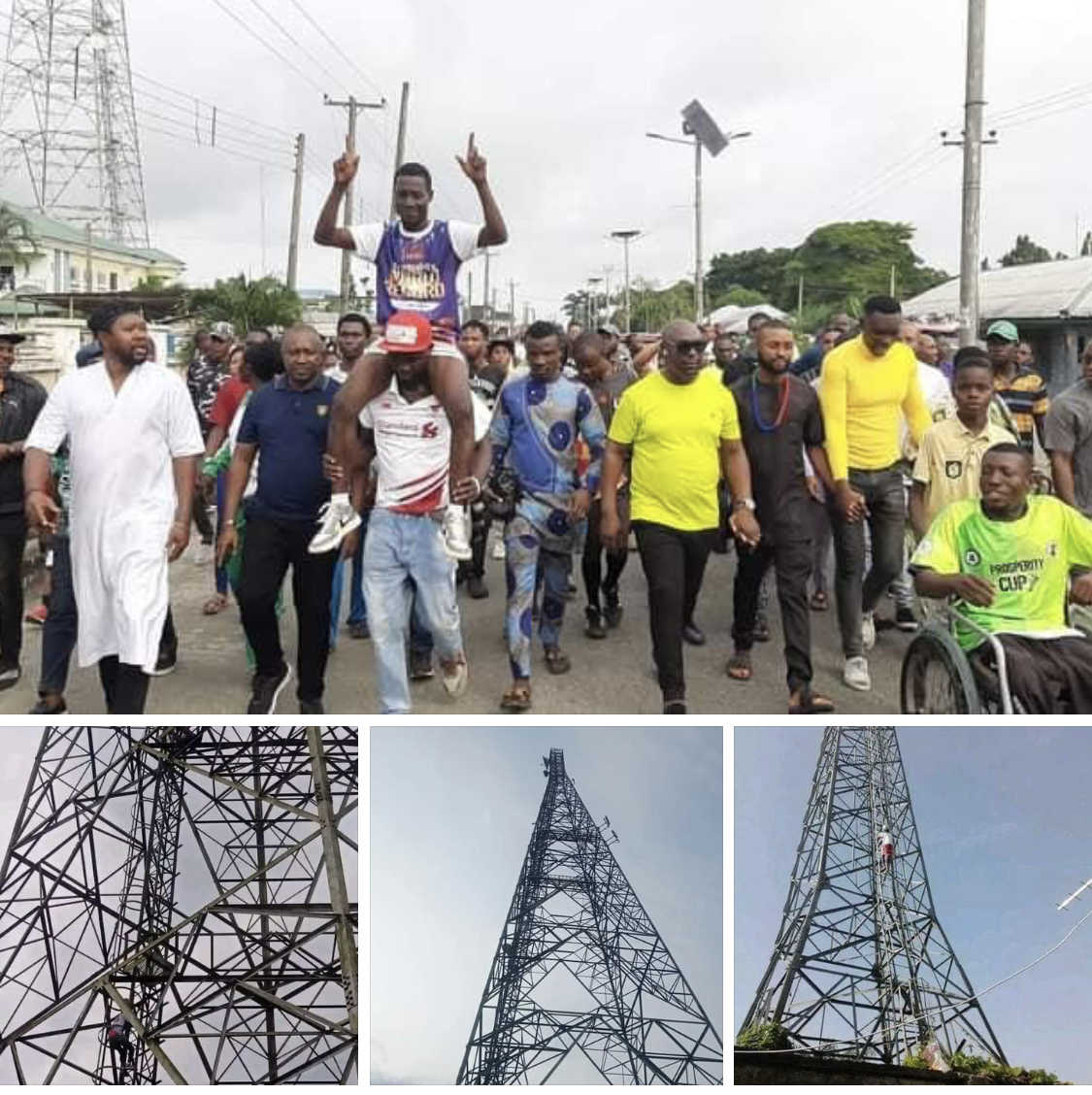
In an incredible feat of skill and determination, Bayelsa’s very own ball juggler, BallBoy Tonye, has shattered the existing Guinness World Record! 🎊🎉🏆
Tonye, with the eyes of the world watching, accomplished the remarkable feat of climbing a mast while balancing a ball on his head. Surpassing the previous record of 70 steps, Tonye managed to conquer an astounding 149 steps! 🤯🌟
Notably, representatives from Guinness World Records were present to witness this historic moment. 📌
Let’s all join in congratulating Tonye on this extraordinary achievement! 🎉🎊🎉
Politics
Jonathan charges world leaders to enthrone peace
The world will be better when we commit to building on the common ground we all share as one human family and promoting democracy.
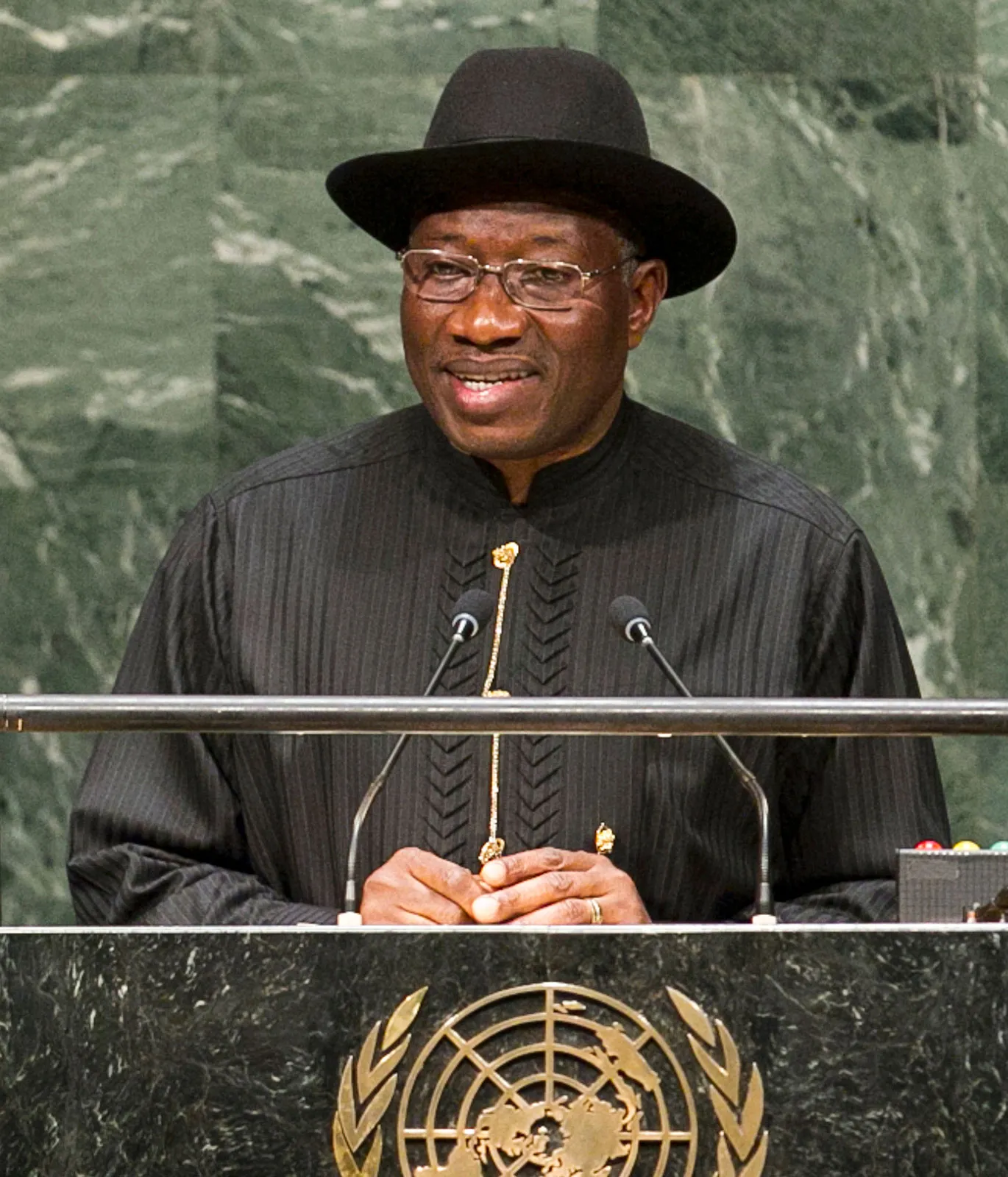
Former Nigerian President Dr. Goodluck Jonathan has charged global leaders to seek to enthrone peace in the world through the practice of true democracy and people-oriented leadership in their respective countries.The former President specified this on Saturday July 22nd 2023 in Phnom Penh, Cambodia, at the International Leadership Conference, jointly organised by the International Association of Parliamentarians for Peace (IAPP) and the Asian Vision Institute (AVI).
The former President who spoke a day before the Cambodian general election in an interview said: “We are all happy to be here today and we will be glad to witness the good people of this great country exercise this democratic right on Sunday, to elect the leaders of their choice for the next governance cycle in Cambodia.
“I urge world leaders to truly imbibe and embrace these principles of true democracy by not just overseeing routine elections but conducting elections that are free, fair, inclusive, transparent and credible towards placing governance at the service of the people and establishing a culture of global peace and harmony.“ talking about elections, it is important to note that election value chain through voting in the field, processing and collating of results to announcement of the outcomes, and in some countries, the judicial procedures where the processes go through litigations, must be built on a solid foundation of justice for democracy to function effectively.
“The International Summit Council for Peace, ISCP-Africa, which I share, will continue to advocate for a democratic culture rooted in free, fair elections, rule of law and good governance.”He further charged world leaders and nations to foster mutually beneficial cooperation and interdependence in the interest of global wellbeing and harmony. In his statement he said: “The world will be better for it when we commit to building on the common ground we all share as one human family and promoting greater solidarity among all peoples.
“On this note, let me remind all of us that before COVID-19 Pandemic, some nations had been under the impression that they could survive solely on their own. However, the COVID-19 experience has made it very clear that the whole world must work together for the peace and security of humanity. Of course up to this time, many nations are still struggling to recover from the harmful effect and deadly impact of the pandemic.
The experience has indeed demonstrated the need for inter-dependence, mutual prosperity and shared values as enunciated by the Universal Peace Federation (UPF).”Jonathan also made a case for good governance, which he described as the trigger for political stability, progress and inclusive development, adding that world leaders should commit to building on the common ground of promoting a democratic culture anchored on justice and solidarity among all peoples.
Speaking on the need for true democracy, Dr. Jonathan noted that when citizens are allowed to freely exercise their electoral mandate, they would be voting for lasting peace and sustainable development and standing up against repression, dictatorship and abuse of the rights of citizens.
-
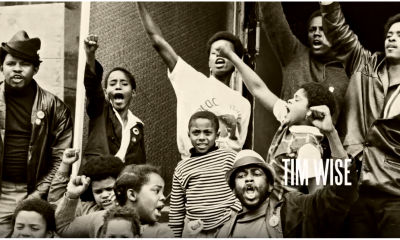
 Documentaries2 years ago
Documentaries2 years agoFilm Review | OUT OF DARKNESS Untold history of African people
-
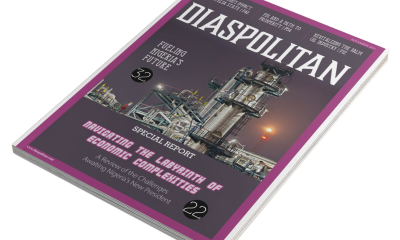
 Magazine1 year ago
Magazine1 year agoMedian Issue
-
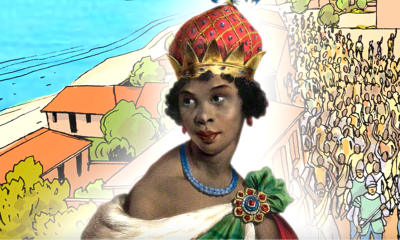
 Documentaries2 years ago
Documentaries2 years agoQueen Nzinga: A Symbol of Resistance and Power in 17th Century Angola
-
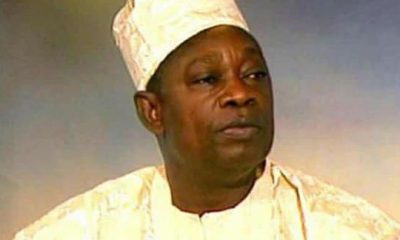
 Retrospect2 years ago
Retrospect2 years agoThe Arrest of Moshood Abiola
-
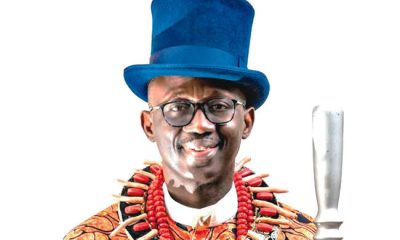
 Society2 years ago
Society2 years agoKing Dakolo speaks out on Crude Oil theft in Nigeria
-

 Health2 years ago
Health2 years agoProvision Of A Framework For Vaccination In Nigeria
-
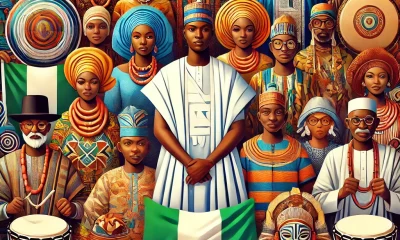
 Business11 months ago
Business11 months agoTHE MODEL PERSONA – What is a Nigerian?
-

 Culture and Entertainment12 months ago
Culture and Entertainment12 months agoThe Kusugu Well: A Legend of Bravery and Triumph
-
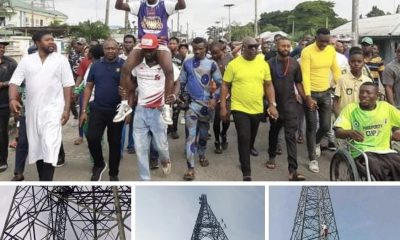
 Society2 years ago
Society2 years agoBayelsa Juggler Ball broke Guinness world record
-
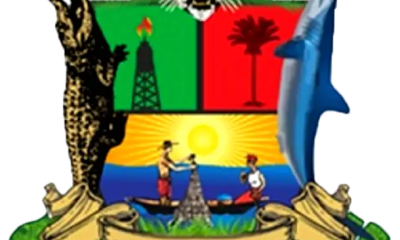
 Business2 years ago
Business2 years agoBayelsa State Government Invests N154 Million to Boost Reven
-

 Health2 years ago
Health2 years agoBauchi Recommended A Six Months Maternity Leave
-
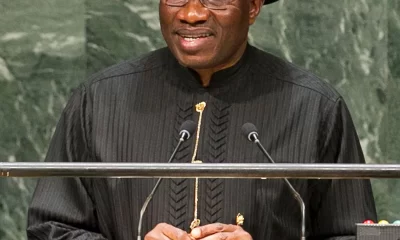
 Politics2 years ago
Politics2 years agoJonathan charges world leaders to enthrone peace
-
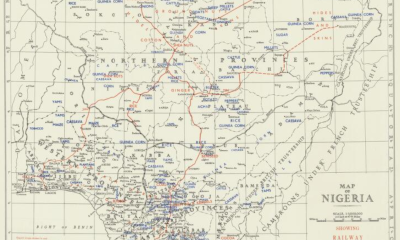
 Retrospect2 years ago
Retrospect2 years agoThe June 20 1963 State of Emergency
-
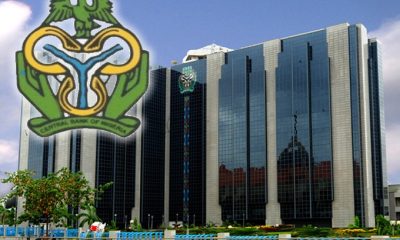
 Business2 years ago
Business2 years agoThe new CBN payout policy for Diaspora remittances
-
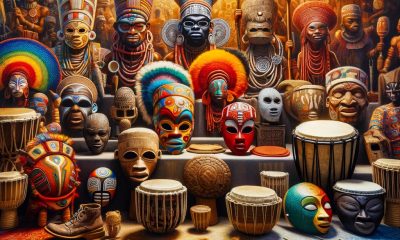
 Culture and Entertainment2 years ago
Culture and Entertainment2 years agoIgbo Culture: An Emblem of Nigerian Heritage
-

 Politics2 years ago
Politics2 years agoDemocracy is a continuous journey…
-
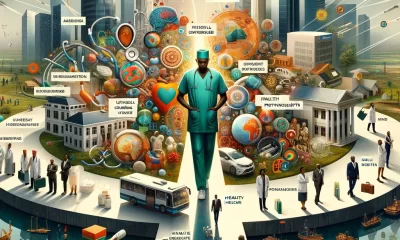
 Health1 year ago
Health1 year agoThe journey towards improving the healthcare system in Nigeria
-
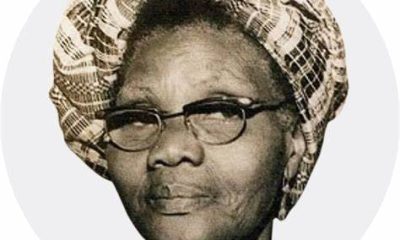
 Retrospect12 months ago
Retrospect12 months agoFunmilayo Ransome-Kuti: The Fela Anikulapo-Kuti and Wole Soyinka DNA Strands
-
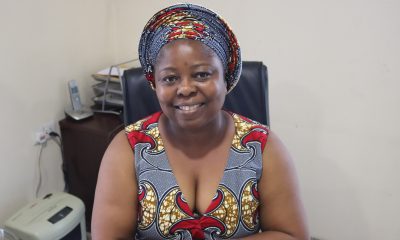
 Politics2 years ago
Politics2 years agoD4D Poised To Engender Democratic Ideals
-

 Health2 years ago
Health2 years agoLagos: Rage Of Doctors Over Deceased Colleague, Demands Pros





